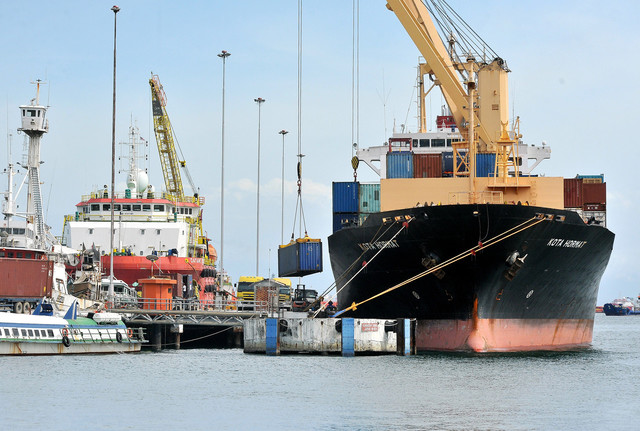KUALA LUMPUR, Sept 27 (NNN-Bernama) — Malaysia’s total trade remained resilient during the 11th Malaysia Plan (11MP), expanding by four per cent per annum despite the challenging external environment, according to 12th Malaysia Plan (12MP) document released Monday.
Malaysia’s gross exports grew by 4.8 per cent per annum throughout the five-year development plan, mainly supported by manufactured goods, which accounted for 86.4 per cent of total exports in 2020.
“Exports of manufactured goods rose by 6.3 per cent per annum, driven by electrical and electronics (E&E), chemicals, optical and scientific equipment as well as rubber products.
“Greater use of semiconductors in the automotive, medical devices and consumer electronics industries continued to generate strong demand for E&E products,” said the document.
It said the share of the top 10 export destinations for Malaysian goods increased from 70.9 per cent in 2015 to 71.7 per cent in 2020 with China, Hong Kong, the United States and Vietnam assuming a greater share.
Nevertheless, the document highlighted key challenges to the country’s trade, namely the escalation of trade tensions between major economies, the plunge in crude oil prices, the global technology downcycle and the COVID-19 pandemic in 2020.
Meanwhile, exports of agricultural goods rose by 1.3 per cent per annum during the 11MP, mainly supported by palm oil and palm-based products which grew by 2.7 per cent per annum.
Exports of mining goods declined by 6.5 per cent, mainly due to lower export earnings from crude petroleum and liquefied natural gas.
Gross imports expanded at an average annual rate of three per cent, driven by intermediate and consumptions goods as well as re-exports, while imports of intermediate goods grew by 1.1 per cent per annum in line with the sustained performance of manufactured exports.
Overall, it said, with the expansion in gross exports outpacing that of gross imports, the trade surplus widened to RM184.8 billion (US$1 = RM4.184) in 2020, compared with RM91.6 billion in 2015.
According to the document, all sectors, except mining and construction, recorded positive growth, with the services and manufacturing sectors remaining as the main impetus to economic growth during the 11MP, while the mining sector had declined due to production disruptions.
The services sector expanded at an average annual rate of 3.8 per cent, led by transport, storage and communication as well as wholesale and retail subsectors, supported by sustained domestic consumptions, it said.
The manufacturing sector increased by an average annual rate of 3.3 per cent, with growth driven by export-oriented industries, particularly E&E which grew by 5.6 per cent per annum, while petroleum, chemicals, rubber and plastics sub-sector increased by 2.8 per cent per annum.
During the 11MP, all states registered positive growth with Selangor, Kuala Lumpur, Johor and Sarawak remaining as major contributors to the national economy in 2020.
“These states accounted for 59.4 per cent of the national gross domestic product (GDP), compared with 57.9 per cent in 2015,” it said, adding that Selangor, Penang, Kelantan, Perak, Kedah, Johor and Negeri Sembilan recording economic growth of above the national average of 2.7 per cent per annum.
According to the document, the growth in most of these states was predominantly led by the services and manufacturing sector, while most of the states which saw growth falling below the national average were dependent on commodities.
It added that private expenditure continued to anchor the expansion in domestic demand, with private consumption up by 4.7 per cent per annum during the 11MP, attributed to the accommodative monetary policy, favourable labour market conditions and stable wage growth.
Private investment registered a decline of 11.9 per cent in 2020 on account of slower global economic growth and sluggish investor sentiment, while foreign direct investment also recorded a decline from RM39.4 billion in 2015 to RM32.4 billion in 2019.
Public investment declined by 7.9 per cent per annum during 11MP, partly due to the postponement and reprioritisation of mega projects including the East Coast Rail Link (ECRL), while public consumptions grew by 3.2 per cent per annum, supported by government spending on emoluments as well as supplies and services.
According to the document, Malaysia continues to strengthen its economic resilience through the implementation of various measures over the last five years.
However, several key issues remain, including low productivity among micro, small and medium enterprises, low investment quality, slow structural economic transition, the wide development gap between states and low share of compensation of employees.
It also includes limited gains from global value chain participation, disruption of the medium-term fiscal consolidation as well as the adverse impact on the environment from unsustainable development.
“These challenges can significantly affect the nation’s economic performance. Therefore, macroeconomic strategies under the 12MP will continue to focus on ensuring sustainable economic growth,” said the document.
— NNN-BERNAMA



